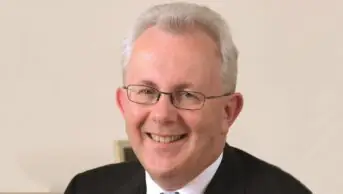
Royal Pharmaceutical Society
The Royal Pharmaceutical Society (RPS) should represent pharmacy technicians as well as pharmacists, for “a more unified approach to pharmacy leadership”, it has said.
In the RPS’s response to a call for evidence as part of the ‘Independent Commission into Pharmacy Professional Leadership’, it said that forming a single leadership body for both professions “will amplify pharmacy’s collective professional voice to employers, other professions, and governments, as well as providing a common approach and infrastructure for education and professional development”.
In May 2022, the four UK chief pharmaceutical officers established a commission to review professional leadership for pharmacy “to guide, support and enable the transformational change” that is ongoing for the sector.
As part of the commission, pharmacists, pharmacy technicians and other stakeholders were invited to submit evidence in September 2022 that “will inform and develop the commission’s recommendations”.
In its submission, published on 5 October 2022, the RPS said: “To achieve professional transformation of this scale, we believe all of pharmacy needs to come together: in particular, pharmacists and pharmacy technicians should be represented in the future by a single leadership body comprised of professional faculties.
“This will achieve a more unified approach to pharmacy leadership, while retaining distinct professional voices.”
However, the document added that the RPS recognises “that the professional leadership body we describe would be a significant evolution of the current RPS”.
“This would require consulting with members on any future changes needed, including to our name and Royal Charter and we are open to this.”
Commenting on the submission, Paul Bennett, chief executive of the RPS, said: “I recognise we haven’t always been clear in communicating our ideas to members and our external stakeholders.
“Through the commission, and our own independent review of member participation and communications, we are determined to remedy this.
“We’re committed to lead pharmacy in the best interest of patients and the professions. This means that sometimes we will need to take difficult decisions.”
He added: “Many of our members work with pharmacy technicians every day and know just how essential they are to their role and to patient care.
“We feel the same at RPS and it makes perfect sense to evolve into an organisation where both professions can advance their scope of practice, working in alignment as part of the wider multi-professional team.”
The RPS response also proposed developing post-registration curricula and credentialing for all pharmacists and pharmacy technicians working with patients.
“To do this we will require formal delegation of authority by the [General Pharmaceutical Council],” said Bennett.
“This approach will give patients confidence in the profession to expand their scope of practice. It will also give pharmacists and pharmacy technicians confidence in themselves and each other. Critically it will give professionals a clearly mapped career path.”
In a statement published on 6 October 2022, Claire Steele, president of the Association of Pharmacy Technicians UK (APTUK) , said the organisation was not consulted on the RPS’s submission.
In the statement, Steele said: “Pharmacy technicians are registered healthcare professionals in their own right; responsible for their own autonomous practice. It would not be conducive for harmonious professional relationships for one profession to assume responsibility for another; indeed, this is not the model adopted by any other healthcare profession.
“The RPS states that in order to achieve enhanced roles for pharmacists in the future, there needs to be close collaboration with pharmacy technicians ‘who will be responsible for the provision of medicines to patients. This will include the sourcing, dispensing, distribution, and storage of medicines; managing prescription systems, and directly supporting patients to use their medicines through advice and education’. As APTUK has pointed out on many occasions, this is and has been for a long time the role of the pharmacy technician (and in many cases pharmacy support staff under the management of a pharmacy technician).
“It is not future facing or in the interests of patient care and the pharmacy technician profession to continually perpetuate the notion that this is all we can do. Indeed, this demonstrates a lack of understanding of the pharmacy technician profession and the significant contributions we can make to delivering safe, effective, patient centred and inclusive care.
“Pharmacy technicians must have access to and be represented as an equal pharmacy professional. The tokenistic approach to pharmacy technician representation to date must stop and be replaced by inclusive, proportional representation.”
- This article was updated on 7 October 2022 to include a statement from APTUK


